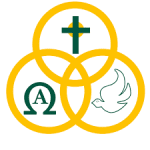I hope you, as a thought leader in your denomination, read Church (from VTS Press, now) then gather a small group of friends together and read A Generous Community: Being the Church in a New Missionary Age when it comes out from Church Publishing in October. Together these two books will help create a cadre of leaders, conversation partners, that can help transform your congregation, lead you to plant new missional communities, and help you transform the community and context in which you find yourself.
A Generous Community is a book of stories and reflections to help create an imaginative synergy between leaders and people who wish to ponder and act upon God's invitation to be at work in the world on his behalf. The book goes deeper with a set of questions, suggested reading, and opportunities for action that can offer a vision of who we are becoming come to life in the midst of the community in which you serve. The release of the fall book will be accompanied by videos and curricula for those of you interested in leading small group studies or in creating interesting adult forums.
My hope is that the two books together will offer leaven to feed the Church's imagination around the work before us. It is an offering to God and the Church. It is an offering to all those who have lost hope in their denominational church over the last two decades. Most of all, it is an offering for those who deeply desire to be part of what God is doing in the world around us. It is you, the imaginative lover of Jesus, passionate missionary, and worldly pilgrim, that I hope to engage in a discussion about the future.
Greg Garrett: You often refer to the ground-breaking work of futurist Bob Johansen to try and help Episcopalians (and others) live into our new reality. How do you find his work useful for people in the Church? What harmful illusions from the past do we need to shed?
Andy Doyle: The theologian and cultural aesthete Harvey Cox wrote:
[Theology] "projected" its own cramped situation into a statement about God and the [modern] world. Now not only was theology incompetent and uninterested in politics, science, technology and the rest, so was God. These fields, the faithful were assured, were autonomous realms with their own built-in self-guiding mechanisms. If managed competently by experts skilled in such matters, they would eventually serve the good of the commonwealth. One had only to be patient, work hard, not meddle in the things one knew nothing about, and — above all — not tear up paving stones. Having been squeezed into a corner by the modern world, theology made a virtue of necessity and wore its own reduced status into the being of the divine.
Is it any wonder that we find ourselves, as Christian communities, ill equipped to have a conversation with the culture that doesn't end up either shutting down or with two sides raising fists and shouting at one another?
One of the things that we jettisoned was our ability as Christian communities to see wisdom in the midst of our context. Therefore it isn't simply Bob Johansen's work that goes without attention, so does Daniel Kahneman's and Nassim Taleb's work on economics and how people make decisions, and Margaret Wheatley's work on new organizational theory. We miss Ken Robinson's work on the future of education. We miss out on innovations in charity, community wellness, community development, and organizing. We have become an unhealthy diaspora.
I find these voices refreshing. I find that they reveal and speak of the possibilities of God's movement and mission of reconciliation in the world. I read them and listen to their talks and I hear ideas about how we as Christian communities might engage our context and make the future God intends.
I think that we must set aside the harmful illusions that we are the only ones with a voice of authority. I think we must remove the idea that our best and highest use of assets is the support of buildings and old models of ministry. I think that we would do well to listen to the wisdom found within our context and listen for God offering to us opportunities for partnership and moments when we and our communities might be transformed.
Greg Garrett: You argue in Church that community building (finding what we have in common rather noting than our many differences) may be the great task of our day. How have you seen the Episcopal Church working toward community? What things would you still like to see?
Andy Doyle: The world is in a place of great intolerance. We are surrounded and live within an intolerant culture. The truth is when the church is broken it has tended to force ourselves upon cultures we colonized, we have employed an "our way or the highway" mentality, we have created systems of winners and losers. We have perpetrated a sense of vengeance for past wrongs and even nurtured in some places retaliation for our history. The church needs to own this as part of its history. As a bishop I own that as part of the office I inherit, and as a participant in the governance of the church.





